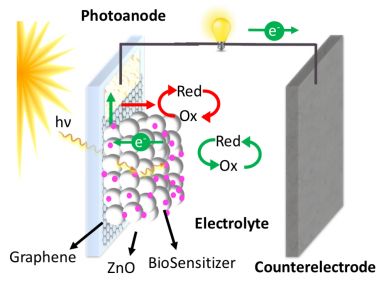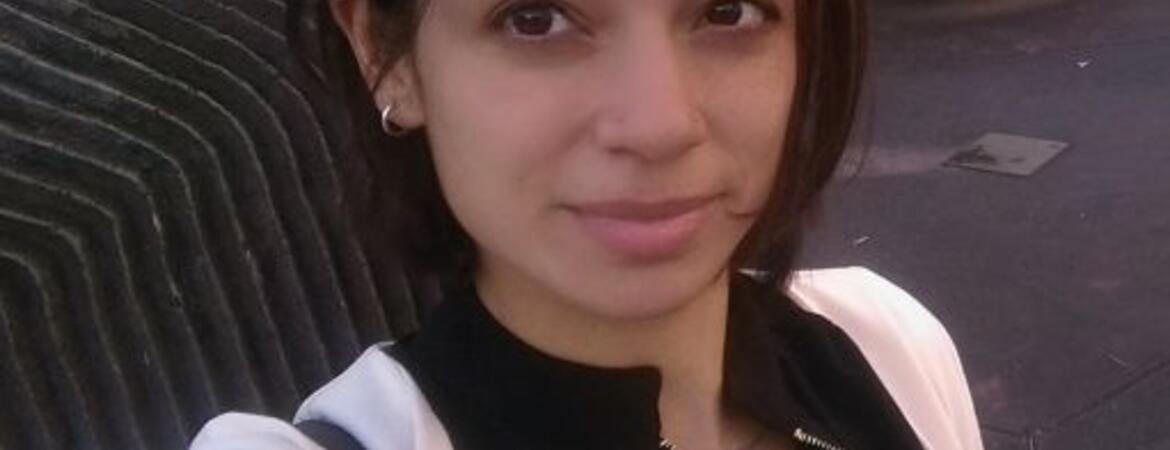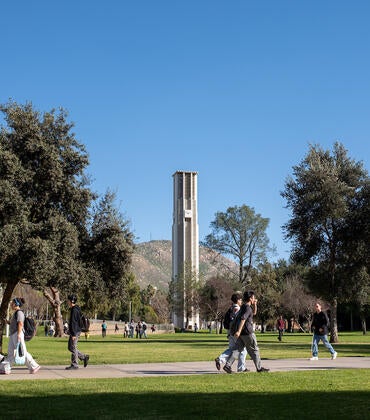Claudia Chaves Villarreal, a Ph.D. candidate in materials science and engineering in UC Riverside’s Bourns College of Engineering, received a 2018 AAAS Pacific Division Alan E. Leviton Student Research Award. The $700 award will support her ongoing collaboration with Ashok Mulchandani, the W. Ruel Johnson Chair in Environmental Engineering, to integrate biological components with photovoltaic cells to deliver fully sustainable solar energy.
Existing photovoltaic technology is not fully capable of realizing the promise of sustainable solar energy. Commercial and emerging photovoltaic technologies require energy-intensive extracting and manufacturing processes and often require metals like tin that generate social conflict and environmental harm with their mining. Slave and child labor, along with rampant environmental destruction and pollution are widespread in the tin mining industry, which in some places is even controlled by militias to fund wars.

Villarreal and Mulchandani are developing sustainable biophotovoltaic technology fabricated from renewable carbon sources. A biophotovoltaic cell integrates biological materials as functional elements in the solar cell. Instead of silicon, they use the protein bacteriorhodopsin, found in halobacteria from salty lakes, as the component that captures sunlight in the device.
Halobacteria are an ancient group of microbes that live in water too salty to sustain most other forms of life. They produce a purple protein called bacteriorhodopsin that absorbs energy from sunlight and uses it to transport protons, along with their electrical charge, as an energy source that sustains the organism’s biological functions.
Bacteriorhodopsin offers a potentially more environmentally friendly and effective alternative to silicon because it naturally converts solar radiation into electricity and can be produced with very little environmental impact.
The researchers integrate carbon nanomaterials like graphene to replace traditional transparent conductors. The award will help them continue improving the design of the device to increase power conversion efficiency by exploring the charge transfer mechanisms at the interfaces of the device.
Villarreal is an assistant professor at the Costa Rica Institute of Technology. She obtained her bachelor’s degree in materials science and engineering with an emphasis on microelectronics from the same institution in 2010. She joined the Mulchandani’s Bionanotechnology research group in 2013, supported by an academic fellowship from her university. The Costa Rica Institute of Technology currently supports 50 fellows in professional development capacities at other universities.
In rural parts of Costa Rica, Villarreal is working with the UC Riverside chapter of Engineers Without Borders to replace firewood in cooking, treatment of agricultural waste water, and economic development with biogas generated from agriculture waste.
She also plans to help establish an academic partnership between UC Riverside and the Costa Rica Institute of Technology that will bring students from Costa Rica to do internships at UC Riverside or pursue graduate degrees, as well as provide opportunities for UCR students to develop research projects in Costa Rica.
“Every student here at UCR or any university around the world is privileged to receive formal education, and we all have the responsibility of returning to society what it has given us. Each of us can do a little more to help solve the problems that the least privileged ones are facing to fulfill their dreams and have a better quality of life,” Villarreal said.




